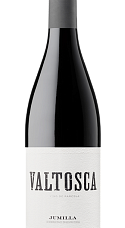Casa Castillo Pie Franco Magnum 2018
Descripción
Casa Castillo Pie Franco es el vino más emblemático de la bodega y uno de los vinos de la D.O Jumilla mejor puntuados por The Wine Advocate. Procede de una única parcela (La Solana) en la que resiste una vieja plantación de Monastrell de pie franco plantada en 1941. Es un tinto mediterráneo, complejo, con una potencia muy controlada y una agradable combinación entre frescura balsámica y toques especiados. Destaca también por su buena capacidad de guarda en botella. Se presenta en botella de 1,5 litros.
Ficha técnica
Cata
Viñedo y elaboración
Opinión de los críticos
I think the pure Monastrell from an ungrafted vineyard has to be among the best in its kind in the world, and the 2018 Pie Franco didn't disappoint me. It fermented with 25% to 30% full clusters (less full clusters were used in this continental and cooler vintage) and indigenous yeasts in underground pools with a moderate maceration at a maximum temperature of 32 degrees Celsius. It matured in 500-liter oak barrels for 16 months. The challenge here is to control the power and natural concentration of the old, south-facing vines, and a year like 2018, even if it presented some challenges and made them work harder in the vineyards, provides good conditions to do so. The wine is incredibly shy, closed and austere. It takes forever to open up in the glass, and even after one hour, the wine is anything except explosive. But the palate has the harmony, depth and complexity of a great wine, with superb balance, very fine tannins with a chalky/mineral texture and great length and persistence. Give it some more time in bottle, not because the wine is not approachable, but because it should open up and develop a little more complexity and expression. Fine, elegant and powerful; I think these are the three words that define this wine that always keeps its Mediterranean character even in cooler years, with classical notes of underbrush and olives—in this case, in a very subtle way. It feels like an updated version of the 2013, a direct, Mediterranean Monastrell without makeup. 7,300 bottles were filled in April 2020. - Luis Gutiérrez.









Añadas: 2021 2020 2019 2018
Esta añada no tiene valoraciones todavía. Pincha en las otras añadas para ver sus valoraciones.
Esta añada no tiene valoraciones todavía. Pincha en las otras añadas para ver sus valoraciones.
Esta añada no tiene valoraciones todavía. Pincha en las otras añadas para ver sus valoraciones.